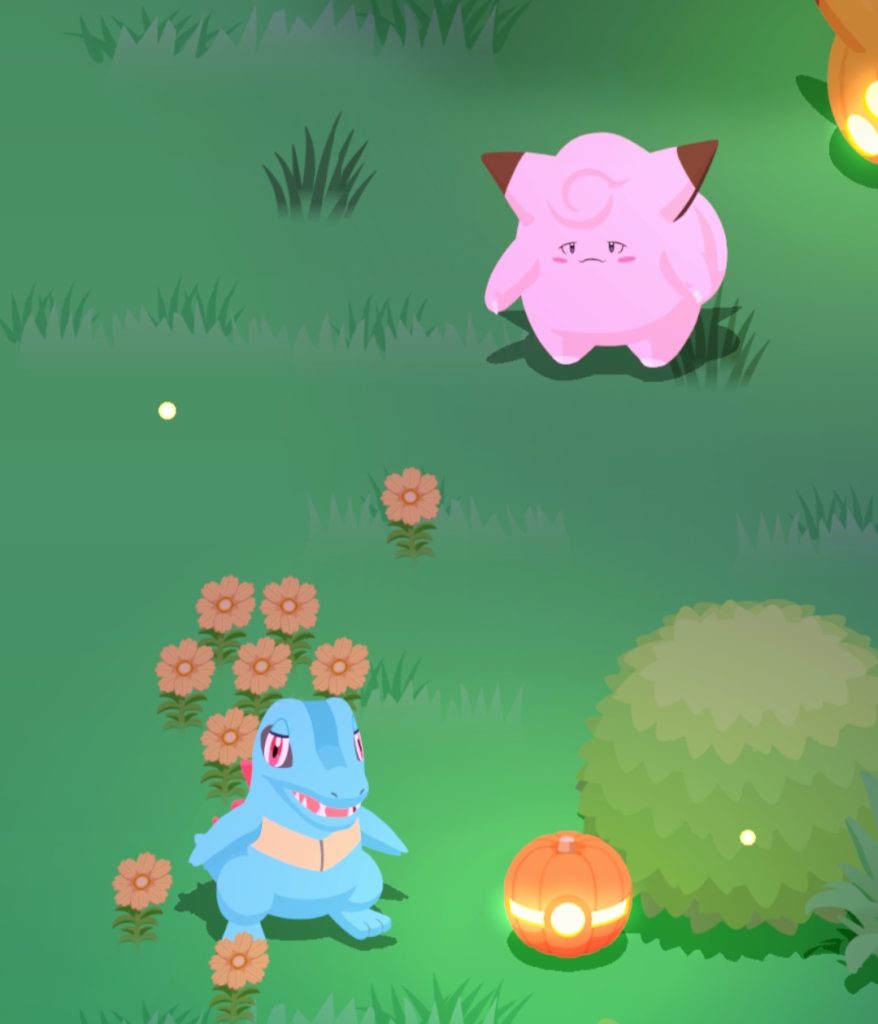My personal context for the podcast episode:
Recently, I downloaded the app Pokemon Sleep after hearing a friend talk about it.The premise of the app is that you are a researcher who helps professor Neroli with his research on the sleeping styles of various Pokemon. You do this by feeding Snorlax berries and dishes, by befriending different Pokemon, but mostly by actually sleeping together with all your Pokemon friends. While you’re sleeping, the app will track your sleep through sounds and phone activity to establish in which stage of your sleep you are and what the overall quality of your sleep is. The longer you sleep and the more regular your sleeping schedule is, the more your Pokemon grow and the more points you score.
On the other hand, if your sleeping schedule is inconsistent or short, your Pokemon friends will also follow this schedule and you will visually see them become more tired and sad. The structure of the app is just like a game which uses real-time interaction as it’s main mechanic, while in actuality it’s a dressed up sleep tracker.

For me personally, it has made me a lot more motivated to start fixing my horrendous sleep schedule. The subtle carrot-and-stick approach the game has with your sleep schedule impacting the health, energy and growth of your Pokemon friends makes me feel responsible for keeping their sleep schedule on track- and by extension my own as well. I am not a huge Pokemon fan, but I did enjoy the show and the DS-games as a kid and by making my team of helpers consist of all my favorite Pokemon, I am even more motivated to keep them happy.
The app actually reminded me of a game we had to play for this course, which tried to visualize the way depression impacts your life. (Spoiler Alert) Somewhere in the game, there is an option to take a cat as a pet, which significantly improves your health and mood, partly because of the strict schedule you need to have, to keep your pet happy and healthy. If you have to get up to feed your cat anyways, the threshold for making food for yourself as well is a lot lower.
In a similar vein, if I want my Pokemon friends, which are kind of my digital pets, to be happy and healthy, I have to go to bed early and regularly, even if I won’t fall asleep for another hour due to insomnia. At least I know my Pokemon friends are able to take a rest after a long day of collecting berries and ingredients.It’s a bit too soon to say if the app will stick as a health improvement or not, since I’ve tried similar approaches to starting healthy habits (like the app Habitica) which have failed within the first week, but so far I feel like it has had a good impact on me.
The way your Pokemon friends respond to your sleep schedule, actually also visualizes the way your own body is responding to it. It has made it clear to me what kind of effect my sleep actually has on my joy and energy, which I, as a person with ADHD, have trouble recognizing.
I have read and heard of many similar accounts, mostly from other people with neurodivergencies, so I am very excited at the prospect of more “bite-sized” health games to come on the market that can help us little gremlins lead a healthy and happy life. I hope Nintendo will see the positive response to their app, especially from teens who really need their regular sleep, and will come out with similar apps for other health problems in the future.

![[VIDEO] The Art of Digital Dissent: Ai Weiwei at the Kunsthal in Rotterdam](https://digmedia.lucdh.nl/wp-content/themes/blogstream/img/thumb-medium.png)
Recent Comments